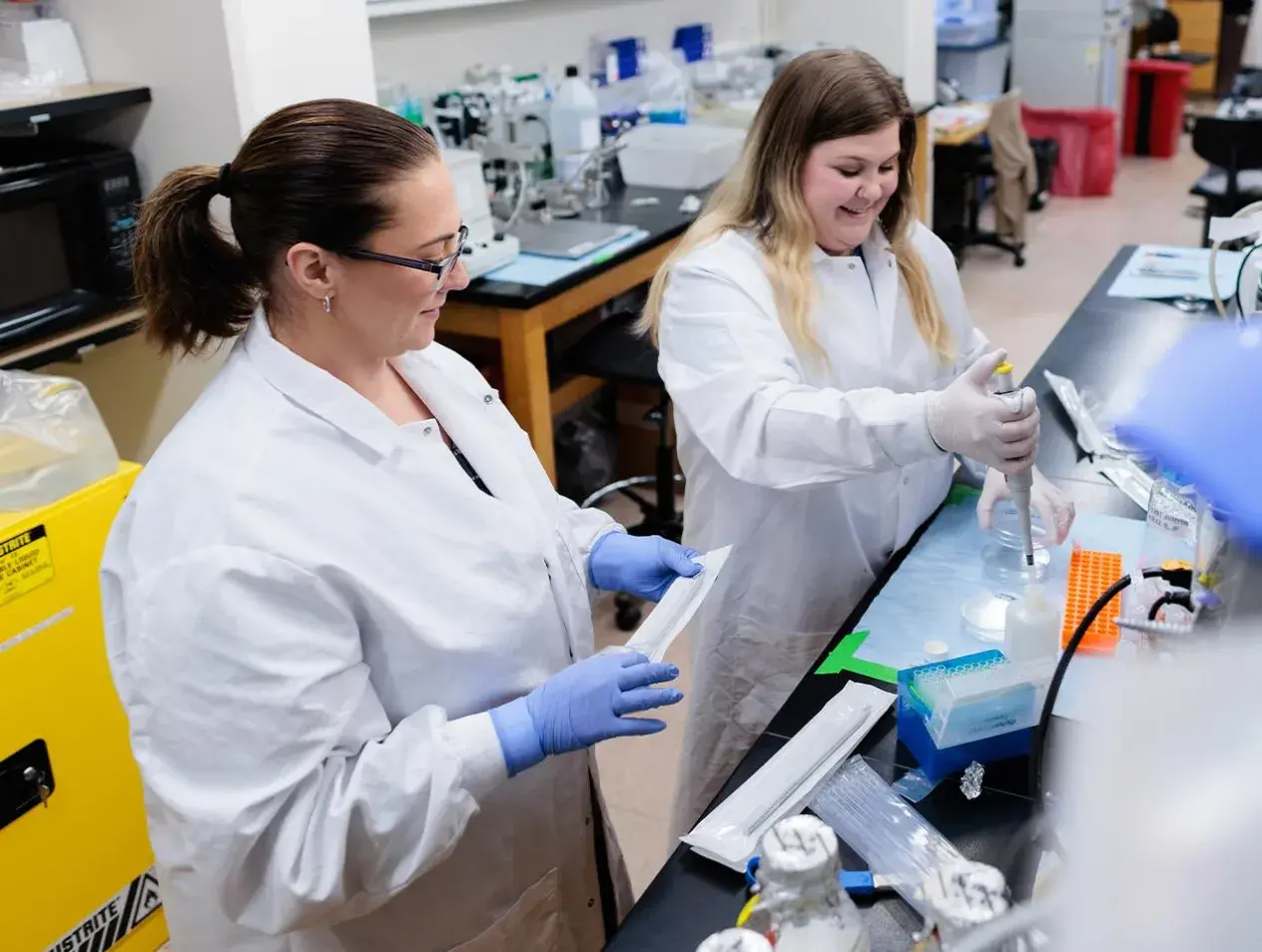
Pharmacology and Neuroscience
Understanding Drug Action, Diseases & Disorders and Neuroscience Through Education & Research.
Pharmacology is the study of drug action on biological systems. Our faculty reflect the complex scope of modern pharmacological research as they apply methods of neuroscience, systems and cell physiology, biochemistry, genetics, and cellular and molecular biology to better understand drug action.
Research
We’re engaged in diverse areas of research:
- G protein-coupled receptor signal transduction and regulation
- Control of neurotransmitter release
- Ion channel modulation and metabolism
- Molecular pharmacology of excitatory neurotransmission
- Environmental contributions to neuroplasticity and development
- Cardiovascular and CNS drug discovery
Our work spans many human diseases:
- Neurological diseases (e.g., epilepsy, autism, schizophrenia)
- Substance abuse
- Stroke
- Birth defects (e.g., neural tube)
- Asthma
- Cancer
- Cardiovascular disease/pulmonary hypertension
Extramural funding for departmental research projects is derived from grants awarded by the National Institutes of Health, American Cancer Society, Department of Defense, American Heart Association, The State of Nebraska, The Simons Foundation, and the pharmaceutical industry.
Teaching and Training
Our primary instructional mission is to provide health professional students with an understanding of neuroscience, pathophysiology of disease and disorders and the pharmacological basis of therapeutics. In addition to instruction of students in the medical, dental, pharmacy, nursing, neuroscience and undergraduate programs at Creighton, faculty are involved in both teaching and research training of graduate students. Our faculty work with an energetic group of graduate students, postdoctoral fellows and research staff in a collaborative environment.




